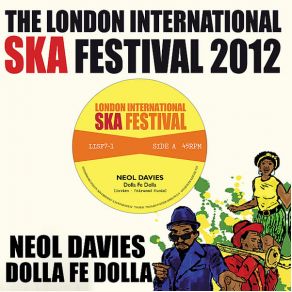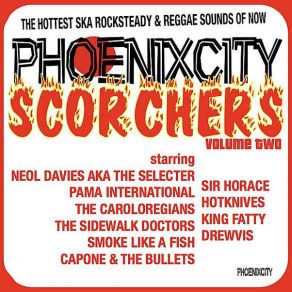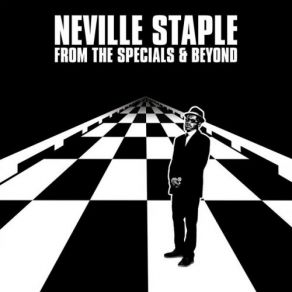Neol Davies
Wikimp3 information about the music of Neol Davies. On our website we have 1 albums and 2 collections of artist Neol Davies. You can find useful information and download songs of this artist. We also know that Neol Davies represents Rock genres.
Biography
[Edit]Neol Davies was an important part of the two-tone ska movement of the '80s with the Selecter. On his 1998 release, Box of Blues, one finds that he has moved away from the ska sound and landed square into the blues zone. With Neol Davies fronting the band on guitar and vocals, one gets to explore the British blues sound at its best. Horace Panter of the Specials and General Public joins Neol Davies by filling in the bass chops. Anthony Harty rounds out the trio, sitting in on drums. Anthony Harty, from Paul Weller and Simon Hickling's band the DT's, is a former bassist turned drummer. At age 31, he may appear young alongside veteran Neol Davies, 46, and Horace Panter, 45, but when he was just 16, Paul Weller thought him good enough to summon him from Coventry, England, to join the Style Council.
The Selecter was once the biggest thing in pop. One day the landlord of the Nag's Head in Nuneaton, England, took a call from some guy called Horace Panter, who said he was looking for a venue for a new band called Box of Blues with Neol Davies. He told the landlord they could send him a CD. The landlord said that he would have to see them perform first, because some bands just can't cut it on stage. Horace Panter, former bass player with the Specials, put down the receiver, shook his head and began to laugh. He admits it was hilarious, but also a bit humbling. As recently as the early '90s, he had played in front of 23,000 people in Madison Square Garden, New York.
He was with the Special Beat at that time and they were supporting Sting. If one goes further back to the late '70s and early '80s, the Selecter and the Specials were in the vanguard of the two-tone ska movement that briefly took Coventry, then Britain, and finally the world by storm. By Christmas of 1979, when they had played before a wildly celebratory crowd at Coventry Locarno, they were already big. Still to come were their number one hits, "Too Much Too Young" and "Ghost Town." "Ghost Town" was written by Jerry Dammers, the former art student who was the creative force behind the Specials. The British ska music he orchestrated was a fusion of reggae with raw punk, black and white music blended together, performed by black and white musicians. This is where two-tone ska originated, the record label he managed to split off from Chrysalis to promote not only the Specials and the Selecter, but also similarly minded bands like the Beat and Madness. The National Front and the British Movement were particularly hostile at the time, and skinheads took every opportunity to cause trouble at the shows. Neol Davies likes to think that they stood up to be counted. Nothing changed things completely, but two-tone ska had its place alongside other movements that tried to help black and white people live harmoniously.
Horace Panter is in agreement, although he knows that harmony was increasingly rare among the Specials as 1981 progressed. When the split came, it wasn't on racial grounds, Lynval Golding and Neville Staples, both black, formed the Fun Boy Three with the pale and mournful fun boy Terry Hall. The split was almost inevitable, given the external and internal pressures. Whenever they played those big sports halls around London, they would have to stop the show for some fight or another in the audience. What about the fights inside the band? If one were to ask all seven members, one would get seven different answers. They feel that they all owe Jerry Dammers a lot, but there's no doubt that he quickly became disillusioned with all of the rock star stuff.
The same tensions were to resurface in 1994 when, much to Jerry Dammers' disgust, five former members got back together under the Specials name to meet the demand for ska from a new generation of students in the United States. Horace Panter was one of them. After performing on the album, Guilty 'Til Proved Innocent, he returned to Coventry England in 1998, to spend more time with his family. Teaming up with Neol Davies and Anthony Harty has given him the chance to be a musician rather than part of a big, choreographed stage act. Neol Davies is in heaven playing the blues and so is Horace Panter. With ska there was not much room for improvisation. Box of Blues allows Neol Davies to show off his mastery of the guitar and employ an asset that has been underused, his voice. Neol Davies and his two colleagues are enjoying the novelty of playing small, intimate venues again. Far from the land of ska, into a land called the blues, Neol Davies, Horace Panter, and Anthony Harty are welcomed members of the community. The soulful presentation of Box of Blues proves to all that they have found a genre where black and white musicians, like two-tone ska, can and have grooved to the same beat for many years.
Collections
Title: Tropic New Wave
Genre: Reggae, Roots Reggae
Title: Phoenix City Scorchers, Vol. 2
Genre: Reggae



